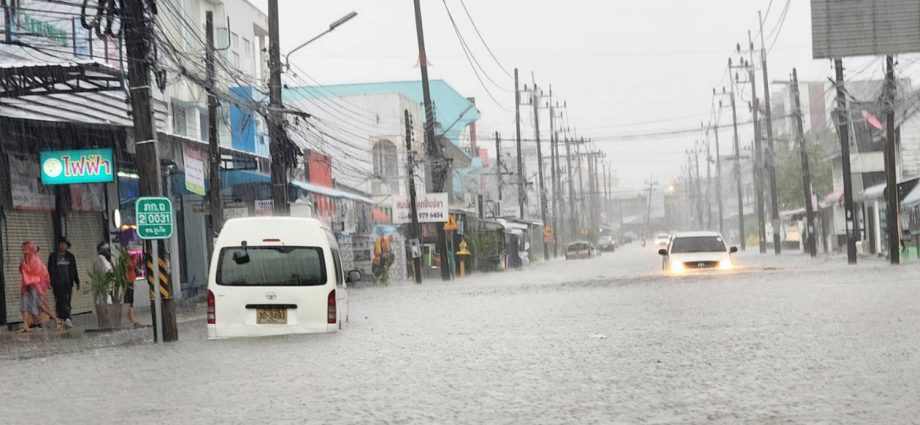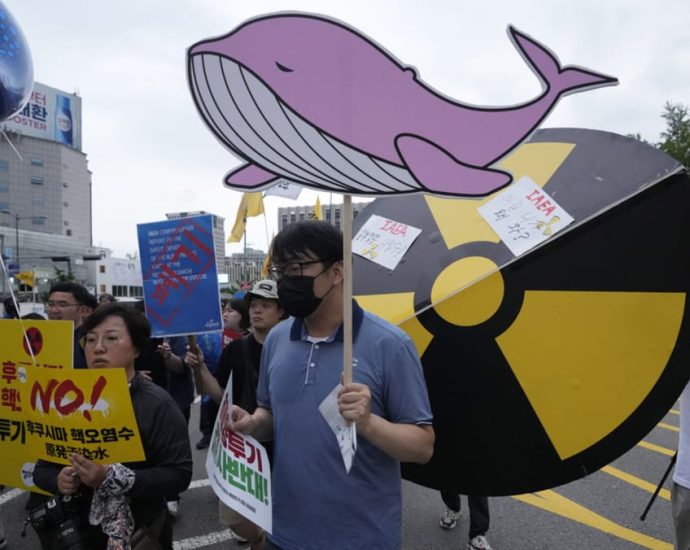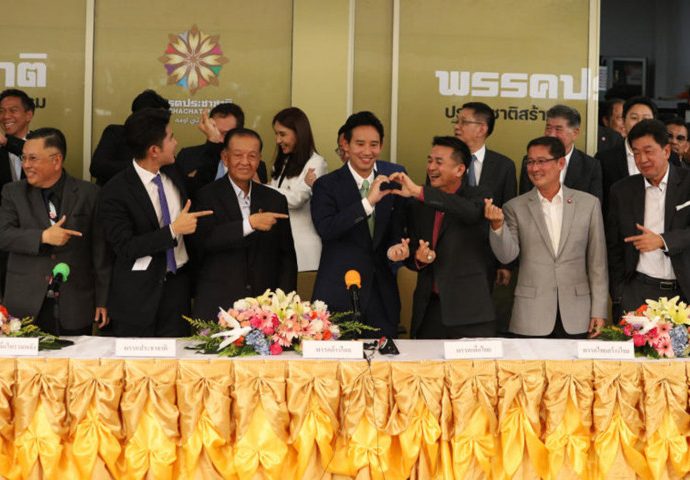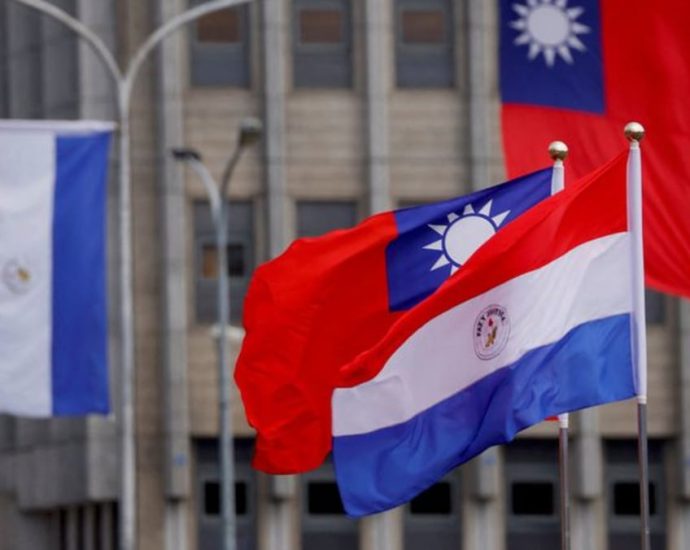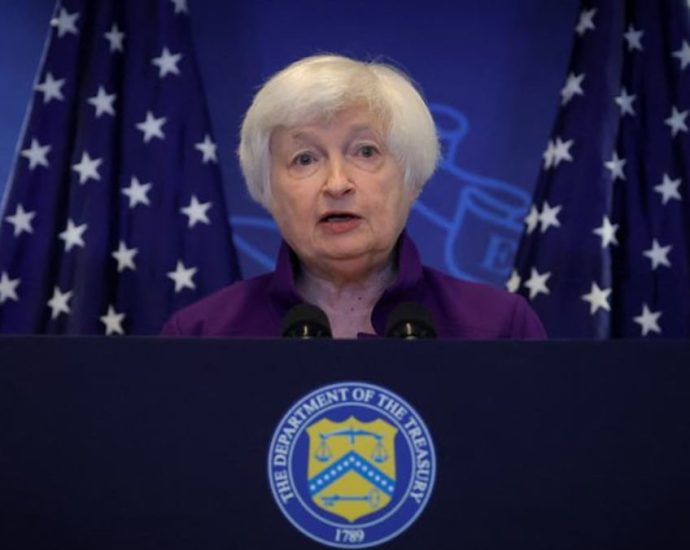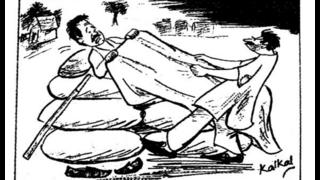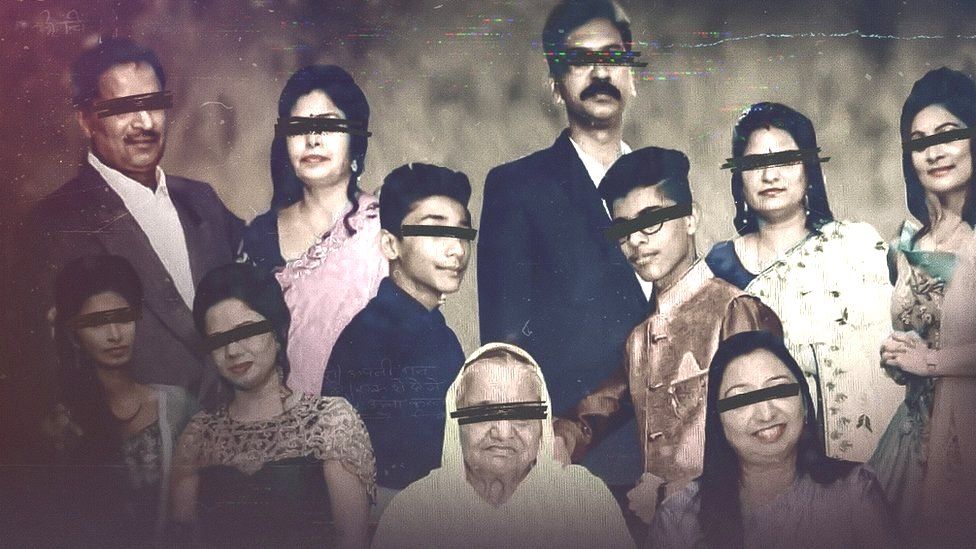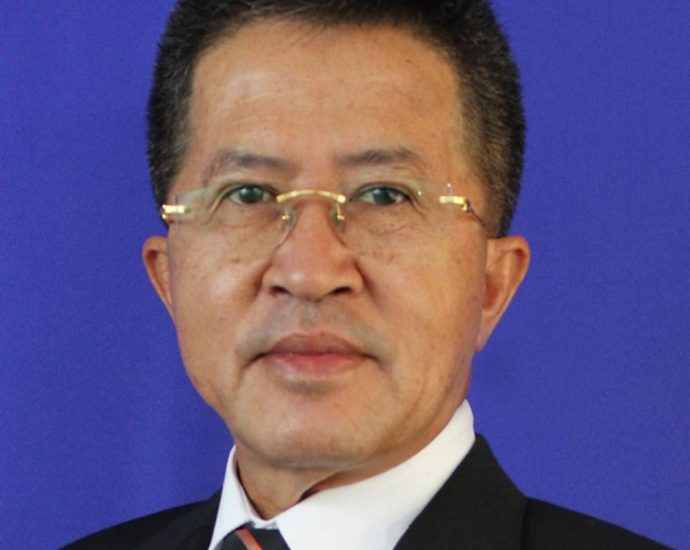Phuket partly flooded, small vehicles stalled

PHUKET: Heavy rains caused flooding and paralysed traffic for small vehicles in this southern resort province on Sunday morning.
It was raining over about 80% of the tourist island and floodwater was deep in many areas on Sunday morning.
The affected areas included Khao Khat, Ao Yon, Phaniang Sam Kongnam, Tha Khraeng, Rai Foon, Dao Roong and Chaofa Sakdidet in Muang district where water levels were too deep for small vehicles to pass. Floodwater in these areas was at least 60 centimetres deep.
In Kathu district, heavy flooding occurred in Patong, Kathu and Kor Kathu areas.
The Meteorological Department predicted that along the western coast of the South including Phuket it would rain in 40-60% of areas from Monday to Wednesday and then 60-70% of all areas in the region on Thursday and Friday.
‘Absolutely logical’ Japan’s Fukushima water release draws interest: IAEA chief
A Democratic Party member who chairs a special committee on the issue said the IAEA’s findings had “shortcomings”, and the widespread public concerns over safety in the country were “legitimate and reasonable”. “We deeply regret that the IAEA concluded Japan’s plan to discharge contaminated water from the Fukushima nuclear powerContinue Reading
Majority believe 8-party alliance will succeed in pushing Pita for PM: Nida Poll

A majority of people believe that, with sincerity to one another, the eight parties forming a government will succeed in their push for Pita Limjaroenrat, the Move Forward Party leader, to be prime minister, according to an opinion survey by the National Institute of Development Administration, or Nida Poll.
The poll was carried out on July 5-7 by telephone interviews with 1,310 people aged 18 and over of various levels of education, occupations and incomes throughout the country to compile their opinions about sincerity of the Move Forward, Pheu Thai and six other smaller parties in forming a government and pushing for Mr Pita to take the prime minister’s post.
Asked about their satisfaction with Wan Muhamad Noor Matha of the Prachachart Party having been selected speaker of the House of Representatives, 45.50% were fairly satisfied; 37.40% highly satisfied; 9.54% not quite satisfied; 6.34% totally not satisfied; and 1.22% had no answer or were not interested.
Asked which between Move Forward and Pheu Thai parties would benefit more from Wan Muhamad Noor Matha’s being made House speaker, 58.93% said the two parties would equally benefit from it; 23.13% pointed to Pheu Thai; 7.94% pointed to Move Forward; 6.95% said neither of them would benefit from it, and 3.05% had no answer or were not interested.
Asked whether they believed the eight parties are sincere in joining hands to form a government, a majority or 55.27% said “yes” and the other side, 43.97%, said “no”. The rest, 0.76%, had no answer or not interested.
A majority, 64.80%, said they believed the eight parties would succeed in pushing for Mr Pita to be prime minister while 34.28% said otherwise. The rest, 0.92%, had no answer or were not interested.
Majority believe 8-party alliance will succeed in making Pita PM: poll

A majority of people believe the eight parties forming the next government will succeed in their push for Pita Limjaroenrat, the Move Forward Party leader, to be prime minister, according to an opinion survey by the National Institute of Development Administration, or Nida Poll.
The poll was carried out July 5-7 by telephone interviews with 1,310 people aged 18 and over of various levels of education, occupations and incomes throughout the country to compile their opinions about whether Move Forward, Pheu Thai and six other smaller parties in forming a government and pushing for Mr Pita to take the prime minister’s post.
Asked how satisfied they were with Wan Muhamad Noor Matha of the Prachachart Party as speaker of the House of Representatives, 45.50% were fairly satisfied; 37.40% very satisfied; 9.54% farily unsatisfied; 6.34% totally unsatisfied; and 1.22% had no answer or were not interested.
Asked which of the Move Forward and Pheu Thai parties would benefit more from Wan Muhamad Noor Matha’s being made House speaker, 58.93% said the two parties would benefit equally; 23.13% pointed to Pheu Thai; 7.94% pointed to Move Forward; 6.95% said neither of them would benefit from it, and 3.05% had no answer or were not interested.
Asked whether they believed the eight parties were sincere in joining hands to form a government, a majority or 55.27% said “yes” and the other side, 43.97%, said “no”. The rest, 0.76%, had no answer or not interested.
A majority, 64.80%, said they believed the eight parties would succeed in pushing for Mr Pita to become prime minister while 34.28% said otherwise. The rest, 0.92%, had no answer or were not interested.
Paraguay president-elect to visit ‘great friend’ Taiwan’s Tsai
TAIPEI: Paraguay’s president-elect, Santiago Pena, will visit Taiwan this week and meet “great friend” President Tsai Ing-wen, he said on Sunday (Jul 9), shoring up a relationship at a time China is working to entice the island’s dwindling allies. Paraguay is the last South American country with formal relations withContinue Reading
Watch: Cars plough through massive Delhi flooding

Heavy rain in India’s capital Delhi has caused parts of the city to flood, leaving residents stranded and vehicles at a standstill.
People have had to plough on through the floods – or sit in the water in traffic jams.
A local resident, Sarita Gupta, said: “I don’t know what the government is doing about this. It’s not just one year it happens every year.”
Video edited by Gem O’Reilly
China, US must communicate on ‘significant disagreements’, says Yellen
BEIJING: US Treasury Secretary Janet Yellen said 10 hours of bilateral meetings with senior Chinese officials in recent days were “direct” and “productive” and helped stabilise the often rocky relationship as her four-day Beijing trip drew to a close. Yellen, who departs Beijing on Sunday, told a press conference the United StatesContinue Reading
After losing her breasts and putting on 16kg, she started a fitness studio to help breast cancer survivors

Fortunately, Aly had been zealous about breast cancer screening and her cancer was detected at Stage 1. It was a small 0.5cm lump in her right breast, and Aly was guardedly optimistic.
“At the start, I was all positive self-talk. I said to myself, ‘I’m a fitness professional, I can do this. I’m going to show the world that I’m a warrior,” she said.
“But the actual journey hit me like a tonne of bricks. It was so much harder than I’d ever envisioned,” she admitted.
INFECTIONS FROM THE BREAST RECONSTRUCTION IMPLANTS
It began as a simple lumpectomy to remove the tumour. However, her doctors could not find clear margins and suggested a mastectomy to remove her entire right breast. Because of Aly’s family history of breast cancer, she decided to remove both breasts, even the one that did not have a tumour.
She then underwent reconstruction using breast implants before proceeding to do chemotherapy.
Little did she expect to get infections from the breast implants.
“That was far worse than my chemotherapy. They had to take out the implant on my right, wash it up and put it back in. Then, my left implant also got infected. So they did three surgeries to wash the implants in total.
“My doctor said I was probably the unluckiest cancer patient in terms of reconstruction that they’d ever had,” she said.
Delhi’s earliest crimes revealed by 1800s police records
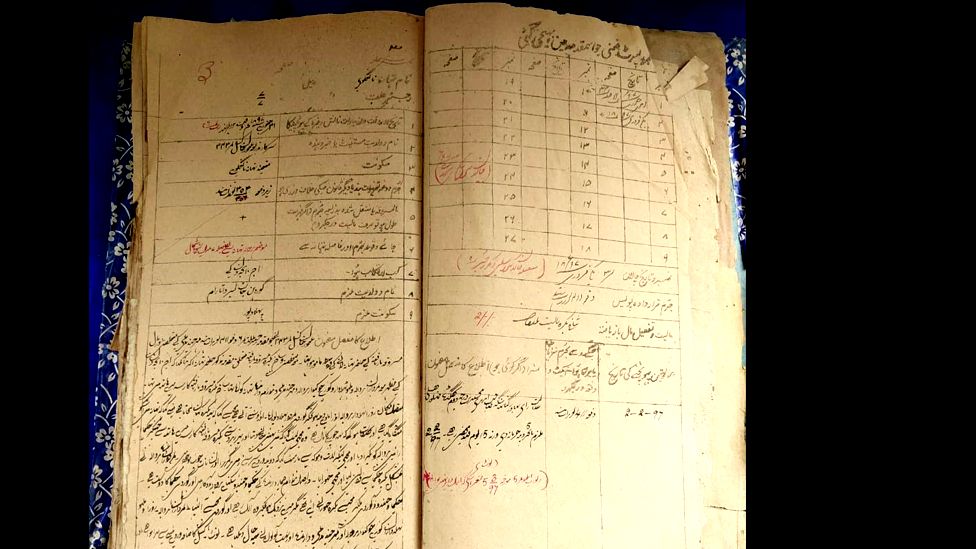 Rajinder Kalkar
Rajinder KalkarOn a cold January night in 1876, two weary travellers knocked at Mohammed Khan’s house in Delhi’s Sabzi Mandi – a thriving labyrinth of narrow alleys in India’s capital – and asked if they could stay the night.
Khan graciously decided to let the guests sleep in his room. But the next morning, he found that the men had disappeared. Also missing, was Khan’s bedroll which he had given the men to rest. Khan had been robbed, he realised, in a way like no other.
Nearly 150 years on, the story of Khan’s ordeal now features in a list of the earliest crimes reported in Delhi, records for which were uploaded on the city police’s website last month.
The “antique FIRs” provide details into some 29 other similar cases that were registered at the city’s five main police stations – Sabzi Mandi, Mehrauli, Kotwali, Sadar Bazar and Nangloi – between 1861 to the early 1900s. In Khan’s case, the police caught the men and sent them to three months in jail on charges of theft.
Originally filed in the tenacious Urdu shikastah script – which also has words in Arabic and Persian – the FIRs were translated and complied by a team led by Assistant Commissioner of Delhi Police Rajendra Singh Kalkal, he also illustrated each of the cases himself.
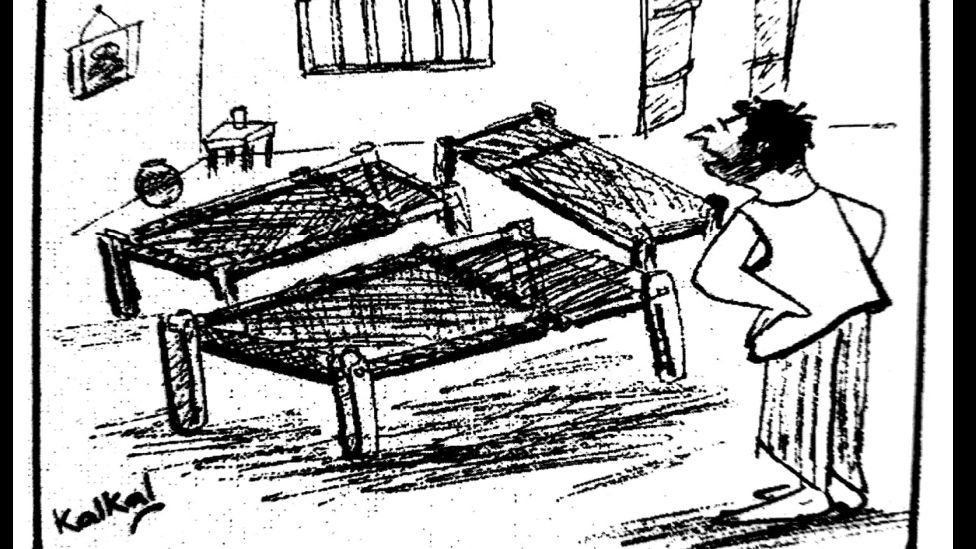
Mr Kalkal told the BBC the records “spoke to him” because of the fascinating insights they offered into the lives of people in a city which has survived waves of conquests and change. “The files are a window to the past as well as the present,” he says.
Most of the complaints involve petty crimes of theft – of stolen oranges, bedsheets and ice cream – and carry a comical lightness to them. There’s a gang of men who ambushed a shepherd, slapped him and took away his 110 goats; a man who nearly stole a bedsheet but got caught “at a distance of 40 steps”; and the sad case of Darshan, the guardian of gunny bags, who gets beaten black and blue by thugs before they snatch his quilt and a shoe – just one of the pair – and run away.
For anyone familiar with India’s past, this might seem odd given how the 1860s was a particularly grim period in Delhi’s history. The Mughal rule had just ended after the British suppressed the revolt of 1857, often referred to as India’s first war of independence. The city – once an idyll of pleasure gardens, Sufi devotion, arts and Mughal regalia – now laid in ferment, sacked and looted.
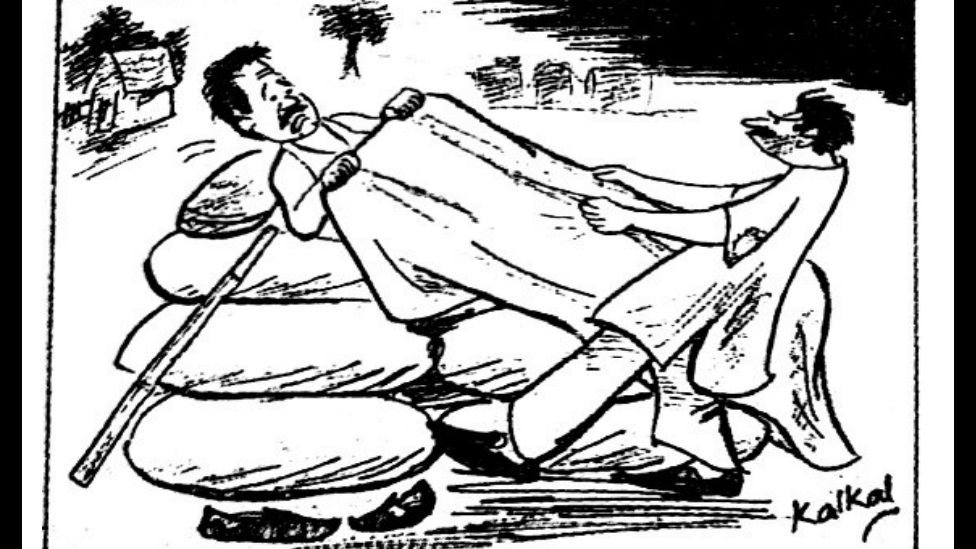
Artist and historian Mahmood Farooqi says that one possible reason why no serious crimes occurred at that time was that people had become deeply intimidated by the British, who continued to run a an iron-fisted rule in the years after the revolt.
Men, women and children were brutally massacred. Many were forced to leave Delhi forever and move to the surrounding countryside, where they lived the remaining years in abject poverty. And a few of those, who managed to remain within the city walls, had to live under the constant threat of getting shot or being hanged to the gallows. “This was a time of carnage. People were terrorised and brutalised so much that they bore its trauma for years.”
Mr Farooqui adds that unlike other cities such as Kolkata (formerly Calcutta) where modern policing had already taken shape, Delhi continued to run on a unique, “a purana, or old” system of policing, laid under the Mughal rule, which was hard to dismantle and replace completely. “So discrepancies or gaps in records are not entirely out of question.”
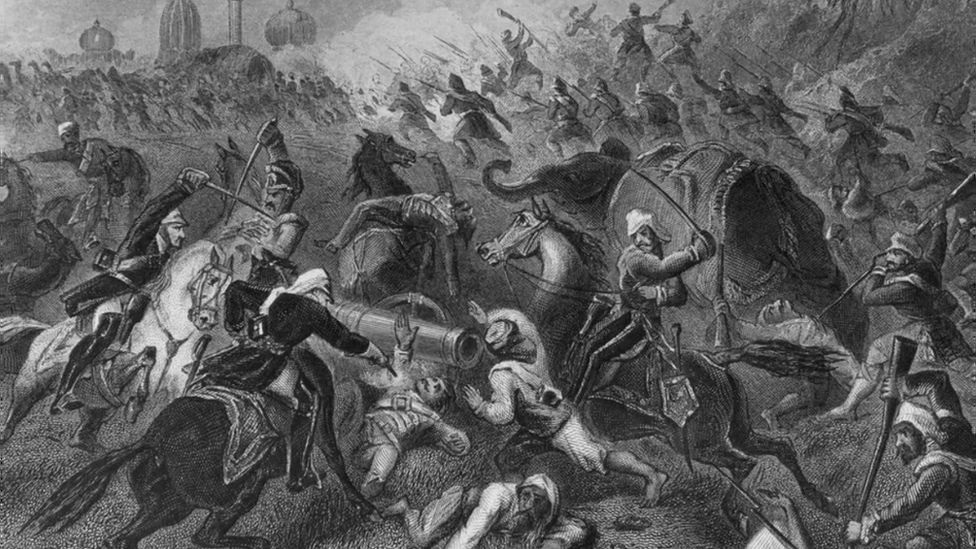
The records, which lie in the Delhi Police Museum, were discovered sometime last year. Mr Kalkal, who was in-charge of the research and preservation of the museum’s artefacts, said he found them while he was browsing through the musty old archives one fine day. “I saw hundreds of FIRs lying in obscurity. When I read them I realised how its format has remained unchanged even after 200 years.”
Mr Kalkal says he too was struck by the innocuous nature of the offences, a time when stealing objects like cigars, pyjamas and oranges was “the worst imaginable thing”.
But the fact that relatively benign crimes were being reported to the cops does not necessarily mean that a lot of heinous crime weren’t already happening – Mr Kalal suspects the first case of homicide would’ve surfaced as early as 1861 itself, when an organised form of policing was established by the British under the Indian Police Act.
“Finding murder cases was not the focus of our research but I am sure they are there, somewhere,” he says.
In many complaints, the outcome of the case is marked as “untraceable”, suggesting that the culprit was never caught. But in several other, such as Khan’s case, swift punishment appears to have been delivered with severity ranging from whippings, beating with canes to a few odd weeks or months of jail time.
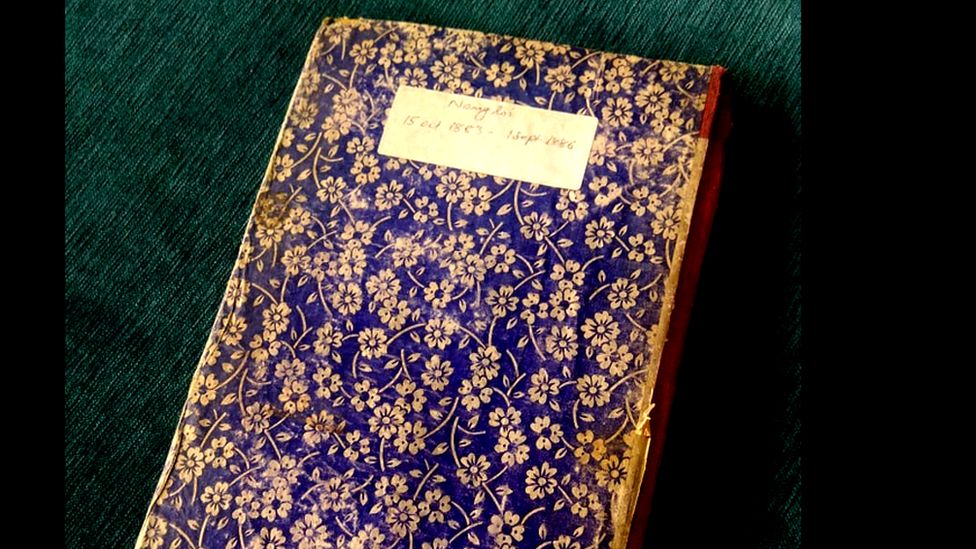
One such crime took place at the city’s most graceful grande dame, the 233-room Imperial Hotel, in 1897. A chef from the hotel was sent to the Sabzi Mandi police station with a “complaint letter in English” stating that a band of thieves, in an act of unimaginable travesty, had nicked a liquor bottle and a pack of cigars from one of the rooms. The hotel announced a handsome reward of 10 rupees for catching the men. But the case turned cold and could never be solved.
“Today, crimes have become so sophisticated that it takes months and years to solve them. But life was much simpler back then, you either cracked a case or didn’t,” Mr Kalkal says.
Mr Kalkal’s team couldn’t be happier about the compilation but he says the initial process of translation was hardly delightful. The difficulty of reading the Urdu shikasta script wore him down on multiple occasions and for cracking that, his team had to seek the skill and persistence of Urdu and Persian scholars and maulvis brought in from every corner of the city.
“But we always knew the effort was worth it,” he says.
He was particularly charmed by one passage which described a police officer’s annoyance after he was forced to park his “vehicle” – his beloved horse – out in the heat while investigating a theft case.
“The details really make you wonder how far we’ve come, isn’t it?”
Related Topics
Move Forward Party faces uncertain fate

The parliamentary vote to select the new prime minister is less than a week away and it is anybody’s guess who will emerge as the country’s next leader.
Under the charter, a candidate must receive at least 376 votes from among 500 MPs and 250 senators to become prime minister.
As things currently stand, the eight-party coalition led by the Move Forward Party (MFP) controls 312 House seats, so it needs the support of at least 64 votes from either senators or MPs outside the bloc to secure MFP leader Pita Limjaroenrat’s bid to become prime minister.
When the joint sitting of MPs and senators convenes this Thursday for the crucial vote, political observers don’t think the new prime minister will emerge in one round of voting. The coalition formation is likely to shift if Mr Pita cannot muster enough support to meet the 376-vote threshold after the second round.
In that event, observers present two possible scenarios: Pheu Thai, the second largest party in the eight-party bloc, may nominate Srettha Thavisin and a joint sitting of parliament may vote for Mr Srettha to be the next prime minister.
Or, Pheu Thai will take the lead in the coalition and bring in new partners or form a new one without the MFP.
In the latter scenario, either Mr Srettha or Gen Prawit Wongsuwon, leader of the Palang Pracharath Party (PPRP), may be voted in as prime minister, while the MFP may be forced into opposition.
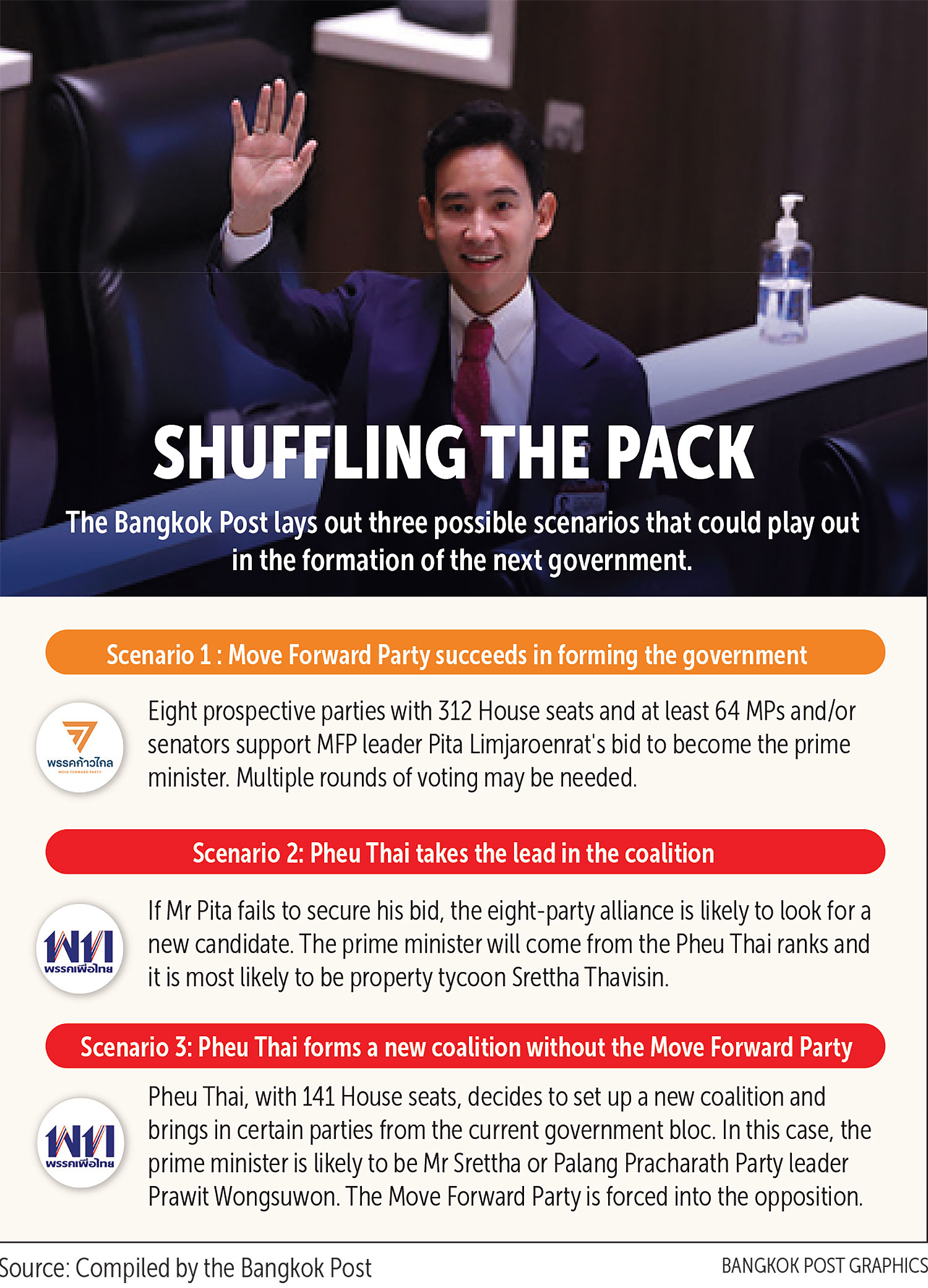
Alliance to move forward
The selection of the House speaker and two deputies is a strong sign the formation of the eight-party coalition is on track, said MFP deputy party leader and list-MP Natthawut Buaprathum.
He said the bloc is also counting on MPs from outside the bloc and senators who indicate they will respect the majority’s wishes and so vote for Mr Pita to be prime minister.
Mr Natthawut said the number of senators expected to vote for Mr Pita is believed to exceed the number the MFP-led alliance needs and he expects the prime minister will be known in just one round of voting.
He said the party will prep Mr Pita for questions to be raised when he presents his vision speech before the joint sitting and if the party can address concerns, some may have a change of heart.
Many senators are against the MFP’s policies to amend the lese majeste law and may vote against Mr Pita or cast a vote of abstention.
“We believe several senators have decided to vote for him but keep the decision to themselves. The number of those in favour of Mr Pita is growing,” he said.
According to the MFP deputy party leader, at this point there is no situation in which the MFP would have to join the opposition and it will take a while before any legal cases against Mr Pita are finalised.
The MFP leader faces complaints questioning his eligibility over a shareholding in iTV Plc. The constitution bars individuals with media shareholdings from running for office.
Mr Natthawut also ruled out the possibility of some party MPs switching sides and dismissed speculation the party could be at a disadvantage because the House speaker is now in the hands of the Prachachat Party, known to be close to Pheu Thai.
He said the party’s fight for the House speaker post has nothing to do with the prime minister vote and the issue is settled now that Wan Muhamad Noor Matha, of the Prachachat Party, has assumed the role.
Regardless of who the House speaker is, the coalition is obliged to follow the memorandum of understanding on coalition formation which it signed, he said.
He said it is time for the country to have a government which can handle pressing matters including investors’ confidence and the budget bill for the 2024 fiscal year.
Asked if the MFP is ready to vote for a prime minister candidate from Pheu Thai, he said he believed every party has selected the best it can offer but it is too soon to consider them.
“We must support the MFP’s candidate first. But if we really have to pick someone else, we will consider candidates from within the alliance,” he said.

Natthawut: Support for Pita ‘growing’
Two rounds ‘should be enough’
There is no limit as to how many times a prime minister vote can be held.
Mr Wan indicated that if a candidate fails to win a first round of voting, further rounds will be held until a candidate reaches the 376-vote threshold. A second round of voting is tentatively scheduled on July 19.
However, there are fears among the Pheu Thai Party that the deadlock can trigger the opposing bloc to nominate a challenger to Mr Pita in a bid to form a minority government.
According to a source in Pheu Thai, although the constitution does not put a limit on how many times parliament will meet to select the prime minister, there is no point in still nominating Mr Pita after two rounds.
There would be no problem if the Senate was not involved in the selection process, and without its support the eight-party alliance still needs MPs from outside the bloc, with Bhumjaithai currently on its radar, said the source.
But Bhumjaithai, which has 71 House seats, is against amending the lese majeste law and the party MPs abstained when the House voted to select the first deputy speaker candidate from the MFP.
The Chartthaipattana and Democrat parties may also be brought on board, but the alliance will have to wait and see how the Democrat leadership race turns out, according to the source.
“But above all, it should be agreed how many rounds of voting should be enough. If it drags on, the other bloc may nominate a challenger. And if they do, they may succeed,” said the source.
It is unlikely that Bhumjaithai will give Mr Pita votes without getting anything in return. In fact, party is expected to drive hard bargain, said the source.
If Mr Pita’s bid fails and Pheu Thai steps in to lead the coalition, the party will nominate Mr Srettha in parliament, the source said, ruling out the possibility of “an outsider” prime minister.
In case parliament fails to select a new premier from the candidate lists supplied by the parties, Section 272 allows half of the 750 MPs and senators to initiate a motion to suspend the rule requiring that PM candidates come from party lists.
Such a motion requires the support of two-thirds of all the lawmakers, or 500, to suspend the rule. A nominated outsider would also need at least 376 votes to become prime minister.
The source admitted that although the House speaker selection was quick and smooth, the prime minister vote could face hiccups. “There are concerns about renegade MPs,” the source said.
PM will emerge ‘from Pheu Thai’
Witthaya Kaewparadai, deputy leader of the United Thai Nation Part (UTN), said the MFP has put itself in a difficult position and if it cannot get itself out, Pheu Thai will take the lead in coalition formation.
He was referring to the MFP’s stance that it would not do business with those who supported Prime Minister Prayut Chan-o-cha in the 2019 general election.
The MFP and its partners will have to work things out with parties they brand “dictatorship” parties, he said, adding they know what the rules are, but still choose to put themselves on the spot.
However, Pheu Thai is considered to be in a better position than the MFP to clinch the PM post because it is opposed to revising the lese majeste law, said the UTN deputy leader.
“Whether or not there will be more parties added to the coalition depends on whether they reverse their stance [on not working with pro-military parties],” he said.
Asked about the UTN’s stance, he said the party made its stance clear when it put up MP for Phitsanulok, Padipat Suntiphada, for the first deputy House speaker post, challenging the MFP.
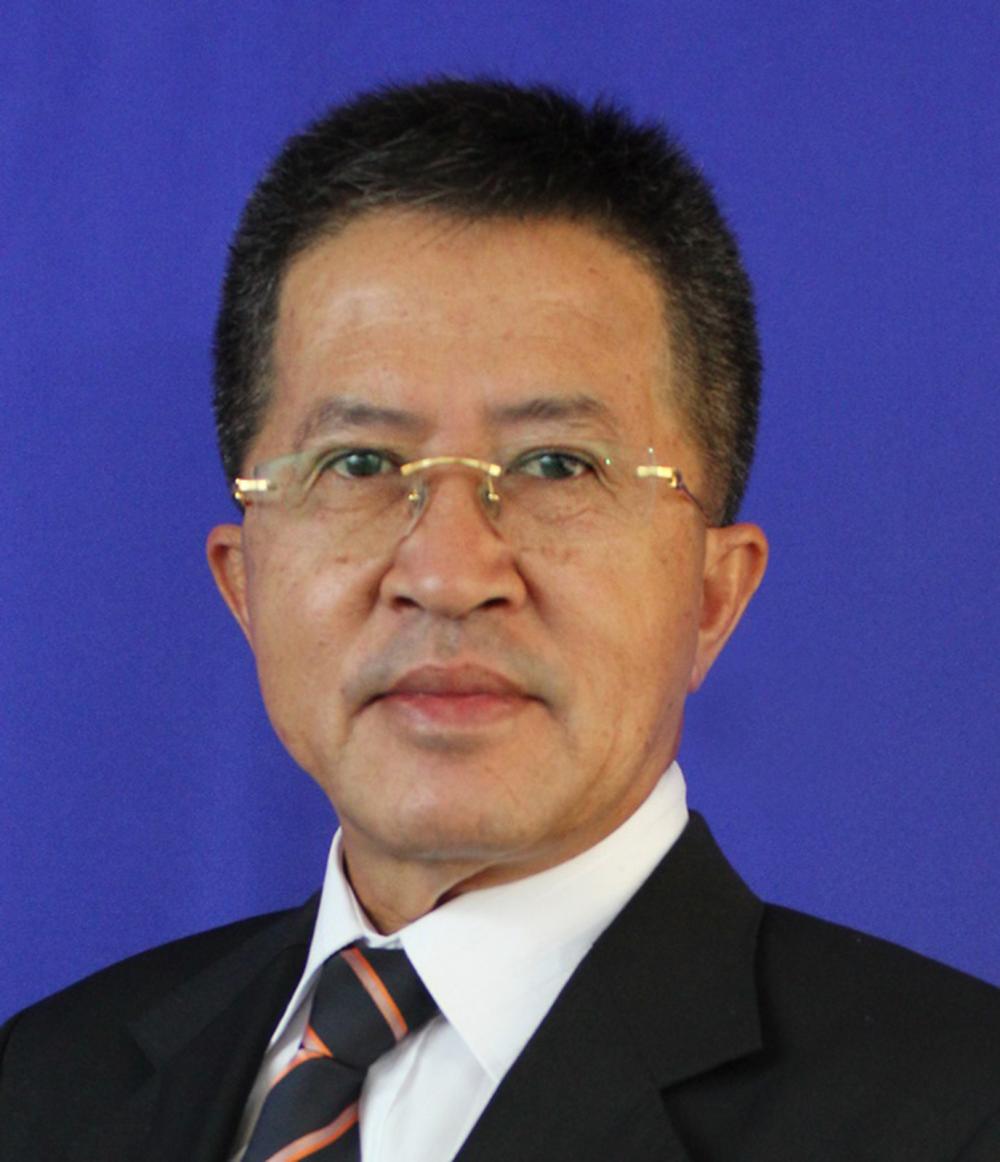
Witthaya: MFP in a difficult position
Sen Somchai Sawaengkarn said the MFP’s election victory caught the Pheu Thai Party off guard and posed a threat to the party which was banking on the two-ballot system to deliver it a landslide win.
In his view, Pheu Thai will negotiate to be part of the next coalition government and if an alternative is possible, the party may drop the MFP and join hands with Bhumjaithai or the PPRP.
“Pheu Thai’s goal is to be in the government and it’s willing to drop the prime minister post. It may even give the post to the PPRP but it’s not easy due to pressure from MFP supporters,” he said.
According to the senator, Pheu Thai will not nominate Paetongtarn “Ung Ing” Shinawatra, daughter of deposed prime minister Thaksin, this time to hold off critics.
Mr Somchai rejected speculation about the current government bloc forming a minority government because it would be short-lived and it would backfire when the next elections are held.
“A minority government is unnecessary and it’s not the way things should be. The parties that opt for this won’t survive the next polls,” Mr Somchai added.

Somchai: Pheu Thai won’t nominate Ung Ing

